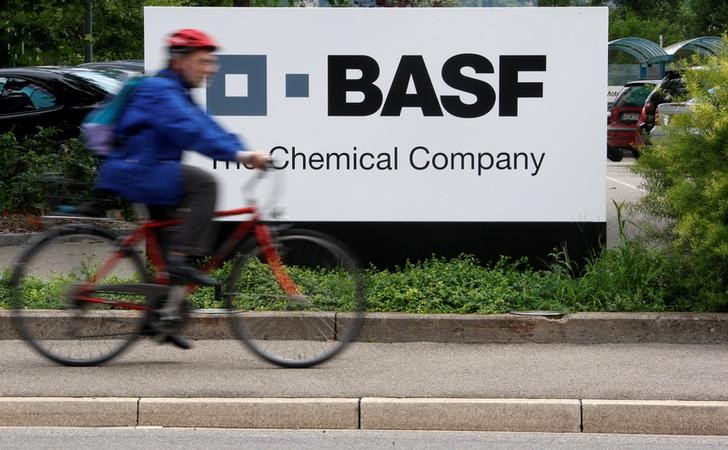Investing.com’s stocks of the week
By Geoffrey Smith
Investing.com -- Europe’s stockmarkets were in headlong retreat again on Tuesday morning after a profit warning from German chemicals conglomerate BASF.
BASF (DE:BASFN) sells to so many sectors and geographies that it can be taken as a rough proxy for the global economy. That makes the read-across from its statement somewhat alarming – not least for all those betting that a looser monetary policy can make up for the damage done by trade wars.
BASF stock fell 5.7% by 4:45 AM ET (0845 GMT), while other chemicals companies also slipped: Covestro (DE:1COV) was down by 6.1%, Akzo Nobel (AS:AKZO) by 1.5%, Clariant (SIX:CLN) by 3.5% and Bayer (DE:BAYGN) by 1.9%.
Germany’s DAX led Europe lower, falling by 1.2%, while the U.K. FTSE 100 fell 0.5% and the STOXX 600 fell by 0.7% to 386.68, giving up all of its gains for the month to date.
The company said it expects earnings before interest and taxes to have fallen 71% year-on-year in the second quarter, and now expects EBIT for the whole of 2019 to fall as much as 30% from a year earlier. It had previously expected a rise of up to 10%.
Two key markets are largely to blame: first, there’s the automotive sector, to which BASF sells a raft of chemicals, coatings and other products. Global production was down 6% in the quarter, and in China, where the economy is cooling fast under the impact of the U.S.’s trade tariffs, the decline was over twice as fast at 13%.
Second, BASF also sells seeds, pesticides and fertilizers to U.S. farmers. That business has suffered this year not only from extreme weather conditions that have restricted planting across the Midwest, but also from China’s trade countermeasures against the U.S., which have mainly hit the agricultural sector.
“The decrease in earnings prospects for farmers and the trade disputes led to lower demand for crop protection products,” BASF said.
Most worrying for all is the company’s outlook: “To date, the conflicts between the United States and its trading partners, particularly China, have not eased – contrary to what was assumed in the BASF Report 2018. In fact, the G20 summit at the end of June has shown that a rapid détente is not to be expected in the second half of 2019.”
Given the breadth of BASF’s businesses, that’s a message you can expect to hear again and again in the coming second-quarter earnings season.
